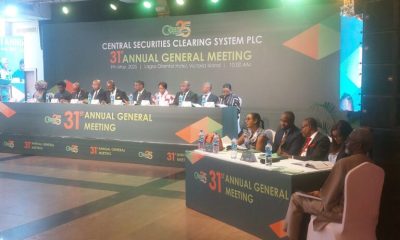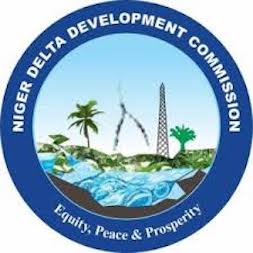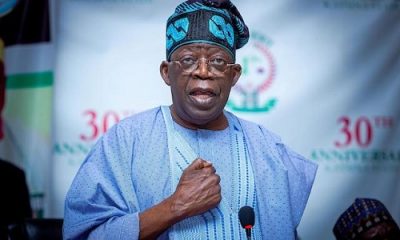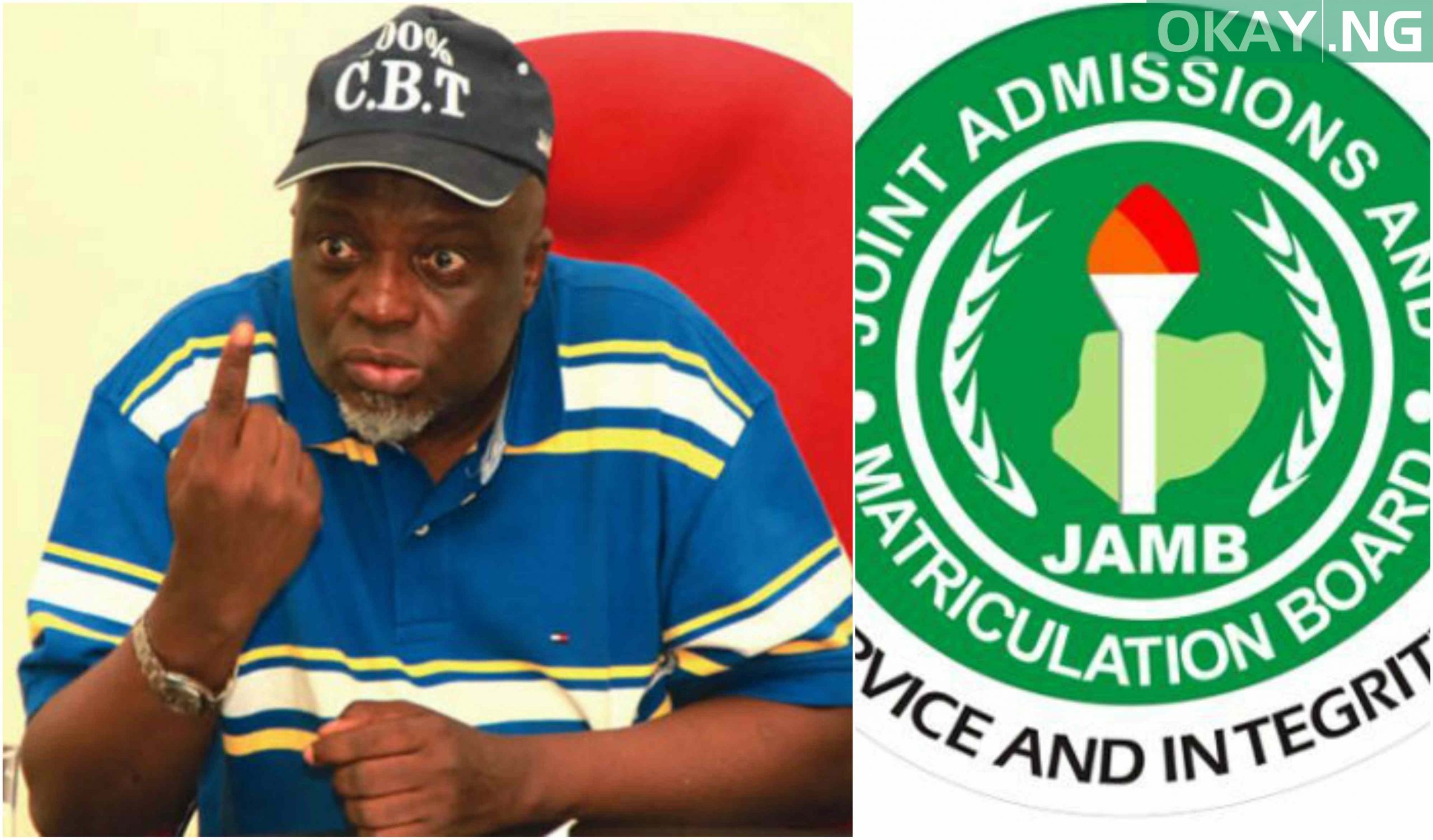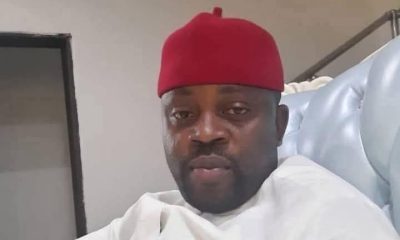EDITORIAL
EFCC’s Encouraging Report

Nigerians are beginning to have hope that its principal anti-corruption fighting agency, the Economic and Financial Crimes Commission, [EFCC]will regain its fading glory. The image of the once respected agency was highly compromised under its former acting Chairman, Ibrahim Magu as a result of high profile cases for which Magu and some top officials of the present administration were linked with.
It is a sad commentary that the report of the Justice Salami judicial inquiry into the activities of the agency under Magu has not seen the light of the day till today . But the good news coming from the Commission under Abdulrasheed Bawa is that EFCC has, in the 100 days of his assumption of office , recovered a whopping $261 million, N6 billion and £13,000 acquired by suspected economic saboteurs. Also recovered by the anti-graft agency were 30 real estates, 32 automobiles, a farmland and other properties acquired by suspected fraudsters.That was not all. The Commission said it was set to prosecute 800 cybercrime cases in various courts soon. The agency also said it will proceed with corruption cases against former governors, ministers and ex-bank chiefs.
EFCC Chairman Abdulrasheed Bawa, gave these details during the Presidential Media Team ministerial briefing at Aso Villa in Abuja recently. He added that the fraud trial of former Abia State Governor Orji Uzor Kalu would recommence. The Supreme Court had ordered the retrial of the Senate Chief Whip in May last year. Bawa explained further that $100 million out of the $261million was recovered from Integrated Logistics Services (INTELS).The $100m, according to him, was part of outstanding remittances that INTELS owed the country in handling logistics at Nigerian ports. In a sense of display of accountability Bawa said: “I have a full breakdown of all funds recovered by the commission from its activities. This is in line with the accountability process of proceeds of funds recovered as a result of financial crimes…“From the time I took over, we have recovered over N6 billion, over $161 million, over £13,000, €1,730, 200 Canadian dollars, CFA 373,000 and ¥8,430.”He added that a couple of some weeks back, the Agency recovered over $100 million for the NPA, but the monies were paid directly into the account of the Ports authority. Apart from this impressive recovery, he revealed that the agency recovered 30 real estates, one carpet, 13 electronics, one farmland, a factory, motorcycles, land, a filling station, and about 32 automobiles. The EFCC boss, who also said the unceremonious exit of his predecessors were clear examples of “corruption fighting back”, added that 1,502 internet fraudsters were arrested in the past five and half months. He said the Commission “was building a tactical centre that will solely deal on this issue of cybercrime.” While expressing concern over the rising cases of internet fraud, Mr Bawa disclosed that no fewer than 1,502 internet fraudsters were arrested between January to the 10th of . Bawa also outlined plans to go after car, jewelery dealers, and real estate developers, who may be serving as conduits for money laundering. We wish to commend the EFCC Chairman for the good work he is doing at the Commission, barely three months in the office. From the account of his just 100 days in office, Bawa has done even more than some of his predecessors within a relative short time than those that spent years in the position . His accounts so far speak volumes of what he has in store for the Commission and the country in tackling financial crimes. Our appeal is that he should not relent in what he has started for the sake of the confidence the government of the day and the nation had in him before appointing him into the demanding office. Above all, we urge the Federal Government to give Mr Bawa the free hand and the necessary support to fight economic crimes and those that have been perpetuating corruption both inside the government and outside it. To make the corruption fight a success, government should not cover up any individual or group found wanting in this regard. There should be no sacred cow whatsoever, for this is one of the obstacles in the fight against the vice. Finally to make the fight against this monster a success, the Federal Government should without further delay make public, the judicial inquest against Ibrahim Magu headed by Justice Salami, in order to restore the confidence of Nigerians that the present administration is really sincere in fighting the crime.
EDITORIAL
Deploy Technology and Intelligence to Fight Insecurity

The growing insecurity in Nigeria – banditry, kidnappings, terrorism and other violent crimes, can rightly be described ‘a national calamity’ that requires the use of technology and intelligence to combat.Realising this, Plateau, a North Central state, grappling with worse security challenges, has announced its partnership with Biench UAS Limited to acquire military-grade drones for surveillance, intelligence gathering and rapid response by security agencies.
At the recent unveiling of Briech UAS-manufactured drones and missiles in Kuje, the Federal Capital Territory (FCT), Abuja, Governor Caleb Mutfwang, alongside the Chief of Defence Staff, General Christopher Musa, emphasized the critical role of technology in modern security operations. They noted that the partnership represents a fresh and innovative approach to tackling security threats in the State and the nation at large.Mutfwang, commended the Nigerian Armed Forces for their dedication to national security. He called on the Nigerian military to encourage local manufacturers in producing military-grade surveillance equipment tailored towards tackling the nation’s unique security challenges.He further highlighted the impact of the partnership, noting that the deployment of Briech UAS facilities in Plateau State has already enhanced the efficiency of security forces on the ground and expressed optimism that the collaboration would further strengthen security operations, ultimately restoring peace and enabling farmers to return safely to their fields.“The time is now to address these challenges that hinder national prosperity. One of my key aspirations for this year is to see Plateau State farmers return to their farms. The only way to achieve this is by providing them with adequate security coverage, both in the air and on the ground, ensuring their safety”, the governor stated.Nigeria’s Chief of Defence Staff, General Christopher Musa, lauded the innovation and initiative and assured that the Defence Headquarters would explore collaborative opportunities with the company to enhance national security efforts.“It is with great honour and appreciation that I witnessed the unveiling and live demonstration of the first set of locally manufactured attack drones by Briech UAS Limited. This marks a significant milestone in our nation’s journey toward self-reliance in defense technology and a major step in strengthening our security capabilities.”If properly utilized, the acquisition of cutting-edge surveillance technology and intelligence would significantly boost the capacity of security personnel to decisively combat criminal elements that are operating with different cells across the country.In fact, those technological advancements could contribute to securing victory over forces that have long destabilized the nation.Additionally, the cutting-edge technologies would provide critical intelligence to enable security forces to take swift and decisive actions against emerging threats.Moreover, in an era of increasingly complex security challenges, the adoption of advanced surveillance technology is pivotal to achieving optimal operational outcomes.The significance of the latest advancements in unmanned aerial vehicle (UAV) technology is a landmark achievement in the nation’s pursuit of enhanced security solutions hence the UAVs are equipped with advanced sensors and imaging technologies to enable them to detect and monitor activities that pose threats to national security.It is embarrassing, shameful and a monumental failure on the part of security agencies who for over two decades have been fighting insurgents, bandits, terrorists, arsonists and kidnappers without much success.In some instances, victims who fall prey to the criminals are brutally murdered while others are held in captivity under inhuman conditions for more than six months. Yet the criminals engage in telephone communication with security agencies and families of the victims without a clear cut way to track and attack them and rescue the innocent victims. This is an indictment on our security agencies.Recall when an American was kidnapped in a boarder town in Niger, a few years ago and trafficked across to Nigeria, the American seals, through the use of technology, tracked and promptly rescued one of their own in less than 24 hours.The Federal Government had acquired and equipped the Nigeria Air force with over 70 combat aircrafts in the last decade. Similarly, the combat equipment of the Nigeria Army, Nigeria Navy, Nigeria Police and other paramilitary forces have been enhanced, yet non-state actors are daily devising new criminal methods of perpetuating insecurity rather than the security agencies caging them.DAILY ASSET urges the Nigerian security agencies to immediately start deploying emerging technologies as well as strengthen intelligence gathering to make the country safe just as the security agencies of advanced nations deploy technology to check criminal activities of non-state actors.We commend the local assembly and manufacturing of military-grade surveillance drones and missiles as a step in the right direction that should be tailored to the nation’s unique security challenges.EDITORIAL
Gagging, Intimidating Critics and Opposition Unhelpful

Recently Nigerian musician and social critic, Eedris Abdulkareem stirred up the hornet’s nest when he dominated the headlines over the ban of his new release ‘Tell your Papa.’ In the music, he criticized President Bola Ahmed Tinubu’s government for throwing the nation into economic and social crises.
Abdulkareem, known for criticising bad governance, has for a period spanning over twenty years used his music to reflect on the state of the nation and point out faults and misdeeds of individuals or groups in government. So when “Tell Your Papa” hit the airwaves it was not surprising to the Nigerian public as they enjoyed and danced to it nostalgically. But the federal government was not comfortable with the message of the music. This development again put the musician at loggerheads with the-powers-that-be.Then came the hammer from the National Broadcasting Commission (NBC), swiftly banning ‘Tell your Papa’ from radio and television airwaves. The NBC cited powers it claimed to derive from Section 3:1.8 of the National Broadcasting Code, which empowers it to issue bans on abusive content.But pundits insist that the section cited by NBC no longer exists, with the only similar provision now found under Section 30:2.7.This section of the Code reads: ‘A programme or musical content classified as ‘Not To Be Broadcast’ (NTBB) shall not be broadcast.’ This appears, however, to be an arbitrary power inserted into the Code without any clear legal backing or justification.The song, according to a memo dated April 9 2025 and signed by Susan Obi, the coordinating director, broadcast monitoring, was deemed to be in violation of Section 3:1.8 of the Nigeria Broadcasting Code.Justifying the ban the NBC said it considered the song’s content to be ‘inappropriate’ and ‘objectionable,” saying it violated public decency standards on broadcast platforms. The commission advised stations to ‘exercise discretion’ and avoid airing the song to maintain ‘responsible broadcasting standards.’ According to the statement, “The National Broadcasting Commission has identified the song ‘Tell Your Papa’ by Abdulkareem, as content deemed inappropriate for broadcast due to its objectionable nature.Abdulkareem’s depiction of the current sufferings in the country may have infuriated the presidency about the fast-deteriorating living conditions in the country. The song highlights galloping inflation, rising crime, and worsening insecurity. ‘Tell your Papa Country hard.’ While accusing the president of implementing anti-people policies, with food prices, data costs, and school fees escalating, he urged him to look into the plight of Nigeria’s urban and rural poor. Thus, the government’s response banning the song from broadcast on radio and television stations nationwide was like killing the mosquito with a sledgehammer, thus further demonstrating the president’s increasing intolerance of criticism since assuming power.A cross-section of Nigerians view the ban as an affront to freedom of speech and a violation of the people’s rights to know. It is obvious that the song hit the federal government below the belt and perhaps what sparked the release of the now banned music could be the recent comments made by Seyi Tinubu publicly praising his father as the greatest Nigerian leader of all time.Abdulkareem did not take Seyi’s encomium on his father lightly. In his usual blunt style, he released the song in response, telling the younger Tinubu to “go and tell your papa” that Nigerians are not smiling at all. He has criticized several government policies past and present, particularly the controversial removal of fuel subsidies. Since the subsidy was removed, millions of Nigerians have felt the pang in their pockets – rising cost of transport fares, skyrocketing food prices and a general increase in the cost of living.Using the Cybercrimes Act, the government appears determined to silence critics, rather than addressing citizens’ genuine concerns about bad governance. Protests against government policies are frequently clamped down on. The planned peaceful protest by the Take It Back Movement in March was forcibly broken up in Port Harcourt, Abuja, and Lagos. Human rights advocates are increasingly alarmed by Nigeria’s descent into intolerance and authoritarianism under the Tinubu administrationAbdulkareem, a notable Nigerian rapper and former member of the hip-hop group – The Remedies. Known for his fearless voice and politically conscious lyrics, rose to national prominence in the early 2000s. After the group’s breakup in 2002.A true veteran of the Nigerian music scene, his journey encompasses several distinct chapters, each leaving a lasting mark.In 2022, the musician had a health challenge – kidney failure. Fortunately, he received a transplant from his wife in 2023. This experience shaped his recent music, with songs like ‘Thank You’ reflecting gratitude and ‘Ghetto Soldier’ highlighting resilience.DAILY ASSET posits that the government ought to have known that the era of silencing dissecting voices in the creative industry is over, due to several new media platforms to air contents all over the world whose servers are beyond the control of the Nigerian government.Moreover, the ban is a spark to further popularize Abdulkareem, his past and present music which might propel him a notch higher as a serial critic of bad governance in Nigeria through his musicAlso, Abdulkareem’s style of music reflects the frustration many Nigerians are facing as he questions how a president can be celebrated as great when the Nigerian people are suffering and starving. The ban is indeed a pointer to the increasing notoriety for intolerance and human rights violations by the nation’s political leadership.The current clampdown on opposition is a serious source of concern because the oxygen of constitutional democracy is freedom of expression and the right to ventilate one’s views. Gagging critics, intimidating opposition and suppressing freedom of expression, is definitely not the way to go.EDITORIAL
A Word of Caution to the Nigerian Senate

In concrete terms, the National Assembly is supposed to be the bastion of the nation’s democracy or what political pundits refer to as the engine of the constitutional system of government. In other words, without the National Assembly there is no democracy. With the return of democratic rule in 1999, Nigeria has had ten consecutive legislatures spanning a period of 26 years.
Nigeria operates a Bi-cameral legislature; made up of two Independent Chambers; the Senate and the House of Representatives.
Despite teething problems – ranging from the removal of various Senate Presidents and Speakers since the commencement of 4th Republic in 1999, the National Assembly could be described as a baby learning how to crawl, stand and walk in the 26 years of its existence.Of course, initially the excuse was that Nigeria was still a nascent democracy. The Nigerian Parliament right from inception had robust and historic developments which date back to the colonial and post-colonial independence but from whichever angle one looks at it, the 4th Republic has a huge legislative responsibility to perform its role as the foremost representatives of the Nigerian people by conscientiously performing its oversight functions and carrying out its core mandate.
Not only that, the lawmakers must not operate as if they are rubber stamps to the executive. By and large, the Senate as the upper chamber of Nigeria’s bicameral legislature is the nation’s legislature and has the power to make laws, as summarized in chapter one, section four of the 1999 Constitution of Nigeria as amended.
The Senate, referred to as the Red Chamber, is made up of 109 Senators representing three Senatorial Districts of each of the 36 states of the federation. Membership of the Chamber is based on equal representation. It is led by the Senate President and his Deputy (President of the Senate and Deputy President of the Senate) as well as principal officers namely Senate Leader and his Deputy, Minority Leader and his Deputy, Chief Whip and his Deputy as well as Minority Whip and his Deputy.
While the House of Representatives also known as the Green Chamber is made up of 360 Federal Representatives. Each member represents one Federal Constituency of Nigeria. The number of Constituencies per State varies since population strength is the criteria used to determine the number of each State’s Federal Constituencies.
The Green Chamber is led by the Speaker and assisted by the Deputy Speaker along with eight Principal Officers that include Majority Leader, Deputy Majority Leader, Minority Leader, Deputy Minority Leader, Chief Whip, Deputy Chief Whip, Minority Whip and Deputy Minority Whip.
The National Assembly is constitutionally vested with several functions. Prominent among them are lawmaking, representation, oversight and a host of others. Accordingly, the apex parliament operates the committee system. Both chambers of the nation’s highest law-making body appoint members into its Special and Standing Committees. The committees have the role of studying and researching Bills, Motions and other Legislative proposals referred to it and report its findings to the Whole Chamber.
Essentially, the major function of the Parliament, apart from its oversight functions, is to ensure that there are checks and balances within the executive and judiciary arms of government. Which is why the parliamentarian is expected to conduct himself or herself with the highest decorum, responsibility and integrity, but unfortunately the 10th Senate under the presidency Godswill Akpabio is shrouded in controversies, mudslinging, unnecessary bickering and wranglings an unfortunate development which has painted the red chamber in bad light and by extension the entire National Assembly.
Senator Natasha Akpoti-Uduaghan, who represents Kogi Central in the Senate would readily come to mind for explicit sexual harassment allegations against the Senate President, Godswill Akpabio.
Akpoti-Uduaghan before her suspension from the Senate told the world how Senator Akpobio allegedly made inappropriate and suggestive remarks and gestures towards her in the presence of other senators and her husband.
The Nigerian Senate, apparently not wanting to be distracted or bogged down by the tantrums, has since shrugged off the heat generated by Senator Akpoti-Uduaghan’s six months suspension from the Senate and her far- reaching accusations against Senator Akpabio, with a vote of confidence. But the crisis in the Senate persists, the latest being the move by some so called concerned Kogi citizens and women groups to recall Senator Akpoti-Uduaghan.
However, her suspension has raised legal debates within Nigeria’s political establishment. With past judicial rulings against prolonged suspensions, her case raises important questions about the limits of the Senate’s disciplinary powers, the protection of lawmakers’ rights, and the broader implications for democratic governance.
Apart from suspending Akpoti-Uduaghan for six months, the upper chamber also withdrew her security aides, locked her Senate office, suspended her salary and allowances, and banned her from entering the National Assembly premises. Critics questioned whether her punishment was merely a disciplinary action or a politically motivated attempt to silence her.
DAILY ASSET is of the opinion that the unending crisis in the Senate about sexual harassment and bribery allegations – following the declaration of state of emergency in Rivers state – are enough distractions to prevent the lawmakers from performing their duties, a setback which is not good for the nation’s fledgling democracy. It is high time the Senate took its mandate of truly representing the electorate more seriously.

